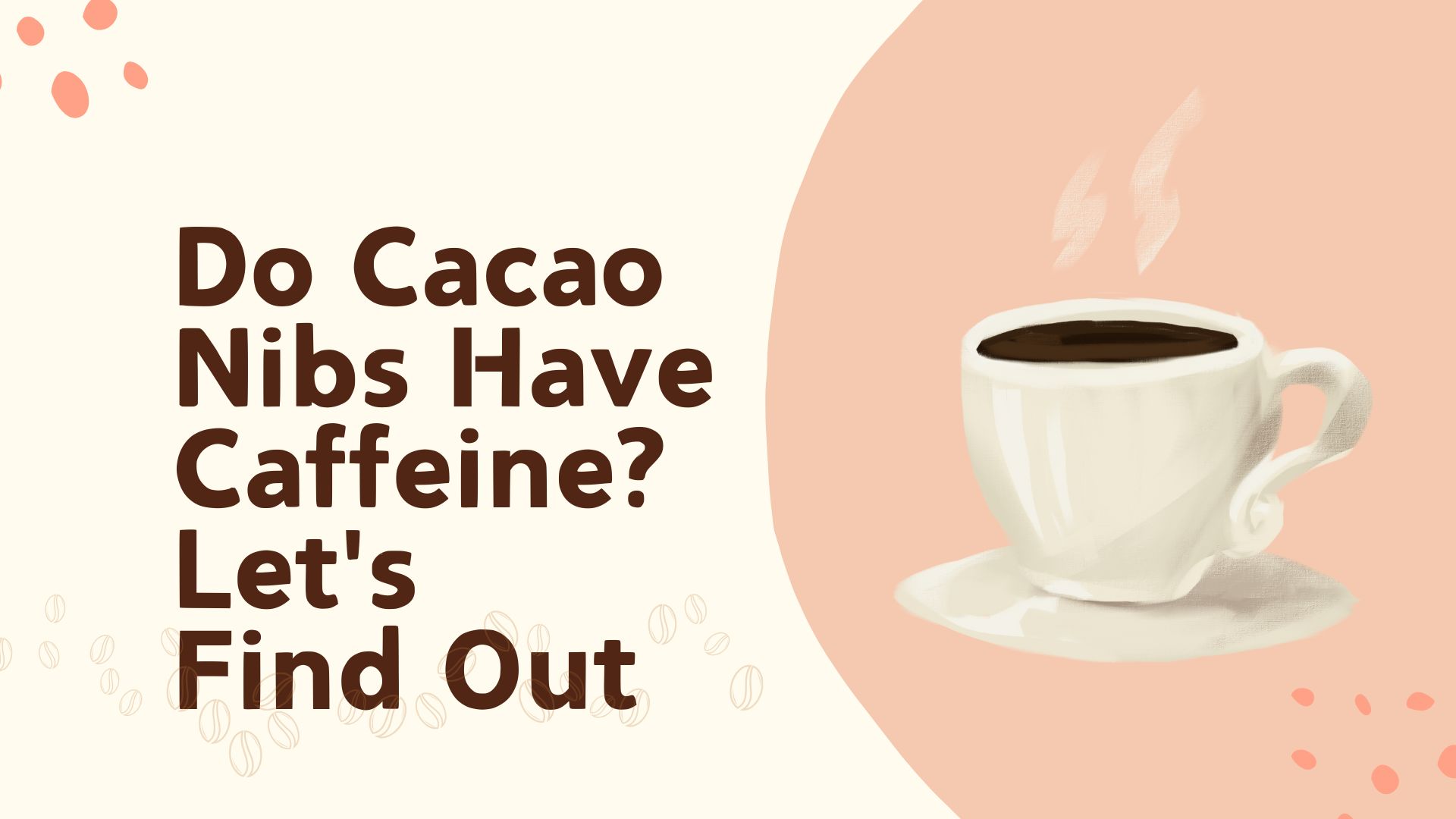Cacao nibs are often called a superfood, and for good reason. They’re crunchy, chocolatey, and packed with antioxidants. But if you’re trying to cut back on caffeine or just wondering how much of a kick cacao nibs can give you, you might be asking:
Do cacao nibs have caffeine? The answer is yes, cacao nibs do contain caffeine. But how much, and what does that mean for your daily routine? Let’s break it all down.
Table of Contents
What Are Cacao Nibs?
Cacao nibs are small pieces of crushed cacao beans. They’re the purest form of chocolate you can eat, with no sugar, milk, or processing. They’re raw or lightly roasted, which helps keep their nutrients intact.
They have a bitter, nutty taste and are often added to:
- Smoothies
- Oatmeal
- Yogurt bowls
- Baked goods
- Trail mixes
Since cacao nibs come straight from the cacao bean, they naturally contain the same compounds found in chocolate, including caffeine and theobromine.
How Much Caffeine Is in Cacao Nibs?
The caffeine content in cacao nibs can vary depending on how they’re processed and where they’re from. But on average, 1 tablespoon (about 5 grams) of cacao nibs contains around 12 milligrams of caffeine.
Here’s a quick comparison:
- 1 tablespoon cacao nibs: ~12 mg caffeine
- 1 cup brewed coffee: ~95 mg caffeine
- 1 cup black tea: ~47 mg caffeine
- 1 ounce dark chocolate: ~20 mg caffeine
So while cacao nibs do contain caffeine, it’s much less than a cup of coffee. You’d need a pretty large amount of nibs to get the same buzz as a single latte.
What About Theobromine?
In addition to caffeine, cacao nibs contain theobromine, another natural stimulant. It has a milder effect than caffeine but can still increase alertness and mood.
Theobromine may also:
- Improve blood flow
- Boost focus
- Act as a mild diuretic
- Support heart health
So even if the caffeine is low, cacao nibs can still give you a gentle energy boost thanks to this compound.
Are Cacao Nibs a Good Option for Caffeine-Sensitive People?
If you’re sensitive to caffeine, you might still be okay with cacao nibs in small amounts. The caffeine level is low, and the energy boost is gentler than coffee or energy drinks. But everyone’s tolerance is different.
Try a small amount first, especially if:
- You avoid coffee due to anxiety or sleep issues
- You’re pregnant or breastfeeding
- You’re cutting back on all stimulants
If you notice jitteriness, trouble sleeping, or a racing heart, cut back or avoid them altogether.
Cacao Nibs and Sleep
Because cacao nibs do have some caffeine, eating them late at night could affect your sleep if you’re sensitive. If you’re having trouble falling asleep and you snack on chocolate or cacao before bed, the caffeine might be playing a role.
Try enjoying cacao nibs earlier in the day instead.
Health Benefits of Cacao Nibs
Caffeine aside, cacao nibs are full of good stuff:
- Antioxidants like flavonoids, which help fight inflammation
- Iron, magnesium, and fiber to support overall health
- Mood-boosting compounds, including serotonin precursors
They’re a great alternative to processed chocolate if you want the benefits without all the added sugar.
Final Thoughts
Yes, cacao nibs do have caffeine, but in much smaller amounts than coffee or soda. They’re not completely caffeine-free, so if you’re super sensitive, it’s smart to eat them in moderation. But for most people, they’re a great way to enjoy a healthy energy boost without going overboard.
Looking for fun ways to add cacao nibs to your diet without affecting your sleep or caffeine intake? I can help with some simple recipes. Just ask!
